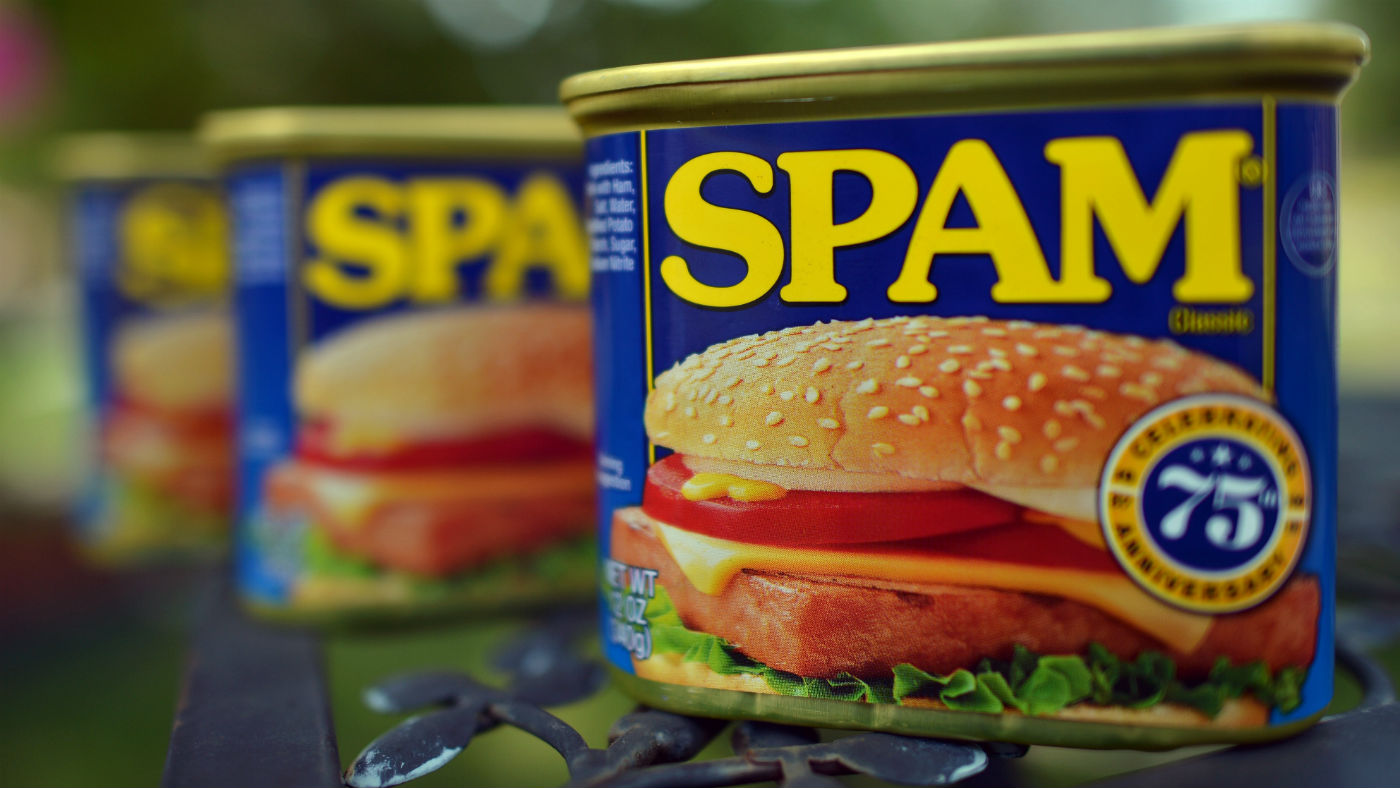Five things you never knew about Spam
In Okinawa, it is common in sushi rolls - and other curious facts as Spam turns 80

A free daily email with the biggest news stories of the day – and the best features from TheWeek.com
You are now subscribed
Your newsletter sign-up was successful
Love it or hate it, you certainly can't get rid of it - Spam turns 80 today.
More than eight billion tins have been sold in 44 countries around the world since the processed pork shoulder first rolled off the production line at the Hormel food factory in Austin, Minnesota, in 1937.
To Brits, the very word conjures up images of post-war prefabs and austerity kitchens, but Spam's global reach has a much more colourful history.
The Week
Escape your echo chamber. Get the facts behind the news, plus analysis from multiple perspectives.

Sign up for The Week's Free Newsletters
From our morning news briefing to a weekly Good News Newsletter, get the best of The Week delivered directly to your inbox.
From our morning news briefing to a weekly Good News Newsletter, get the best of The Week delivered directly to your inbox.
Here are five things you probably didn't know about the world's favourite tinned pork.
It's a staple of several cuisines
During World War II, US troops in the Pacific theatre brought Spam to Hawaii, Guam, the Philippines and the northern Mariana Islands, where it was rapidly integrated into the local diet.
In Hawaii and Okinawa, it is a common component of sushi rolls, while Spam Jam, a popular chain restaurant in the Philippines, serves nothing but Spam dishes.
A free daily email with the biggest news stories of the day – and the best features from TheWeek.com
During the Korean War, food shortages forced many Koreans to rely on surplus foodstuffs given away by US troops, including "new" ingredients such as hot dogs, processed cheese - and Spam.
Many of these fusion dishes remain staples to this day, making South Korea the biggest consumer of Spam after the US, the New York Times reports. Especially popular is budae-jjigae or "army base stew", a now-classic Korean comfort food made with kimchi, noodles and Spam.
Guam is the Spam capital of the world
The tiny US territory of Guam consumes more Spam per capita than anywhere else in the world - the average local scoffs an impressive 16 tins per year and Spam even features on the menus at McDonald's.
However, the country's fondness for the sodium-heavy processed meat has a downside when it comes to the locals' heath. "According to one study, 60 per cent of deaths on the island of 150,000 are blamed on poor diet and lifestyle," Time magazine reports.
It once had its own radio programme
Capitalising on Spam's new familiarity as a ration-pack staple, in 1947, producers Hormel formed an all-girl band to travel the country promoting its flagship product.
The Hormel Girls eventually got their own radio show, which proved surprisingly successful. "At their peak… 'Music with the Hormel Girls' was a top-rated weekend show on three different radio networks," the Minnesota Post reports.
How it inspired our word for junk email
The term "spam" for unwanted emails derives from the early days of the internet, when it was used to describe users who would flood message boards and newsgroups with self-promotion or other unwanted content.
It came from a Monty Python sketch in which a cafe owner reels off a long menu in which every item features Spam. The customer's annoyance at the constant repetition of the word "Spam" - itself a commentary on the product's ubiquity in post-war Britain - was considered an accurate reflection of web users' feelings on wading through useless, repetitive posts.
There's more than one Spam
In 1971, after three decades on supermarket shelves as plain old Spam, the dish branched out to include cheese and hickory smoke variants.
Depending on where you are in the world, you can now enjoy Spam in more than a dozen flavours, including jalapeno, Portuguese sausage and teriyaki.